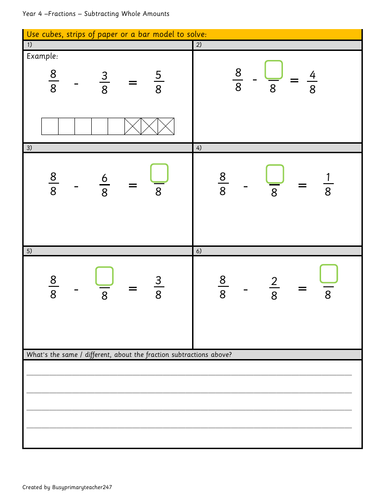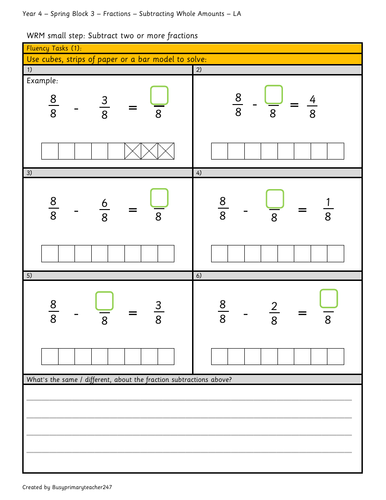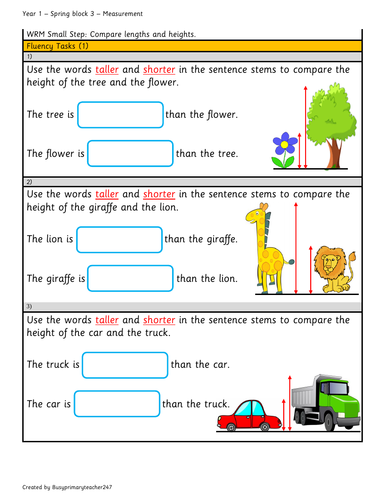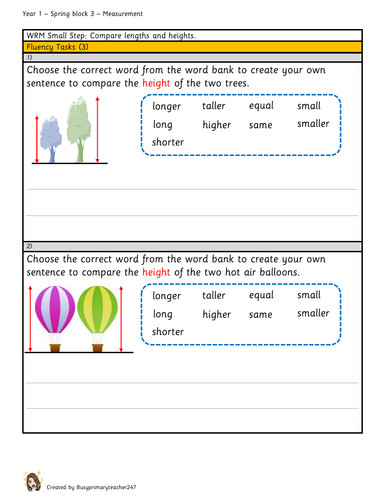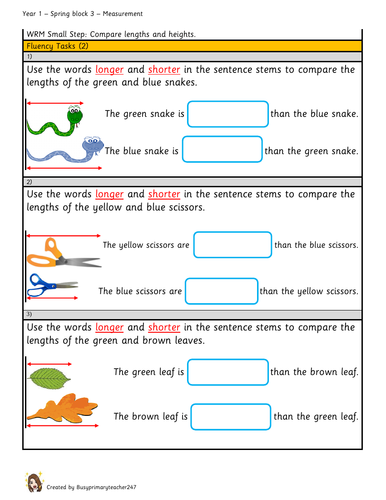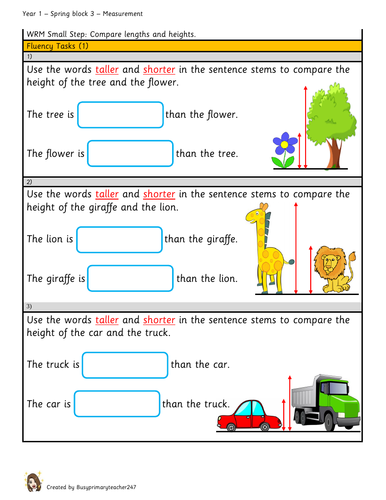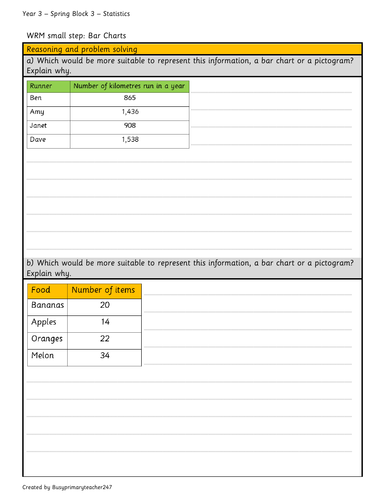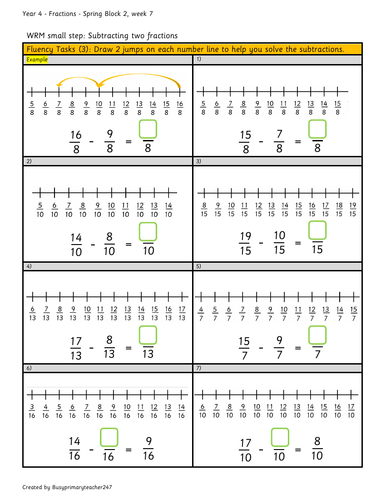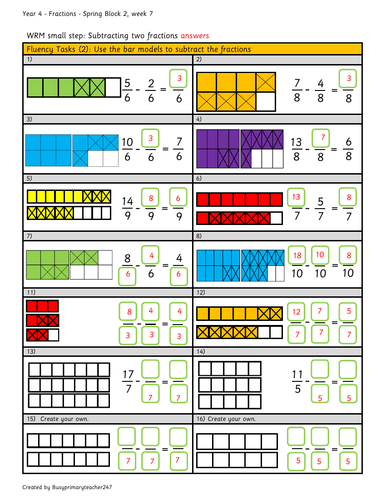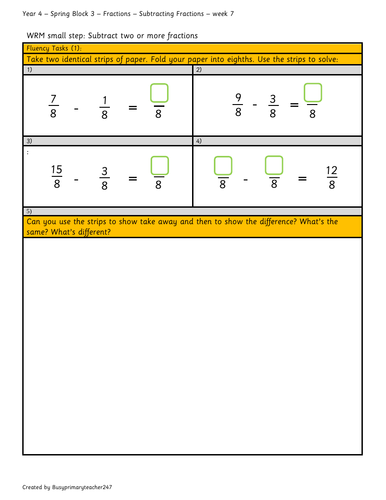132Uploads
174k+Views
66k+Downloads
Mathematics
Bundle

Year 3 Multiplication and Division Bundle Autumn term
This year 3 bundle contains 15 question strips related to multiplication and division for the Autumn term. Each strip follows the CPA approach for Maths Mastery and contain varied fluency and reasoning questions.

Fractions - Calculating Quantities - Quiz Card Cooperative Activity
This is a fun and active way to get your class reviewing and consolidating their understanding of calculating quantities. Great as a lesson warm up, end of lesson plenary or test prep. Children work co-operatively with different partners to quiz each other on a variety of questions. If a child gets a question wrong, they give clues and ‘tutor’ them, so that they can both be successful. This product includes 36 quiz cards plus a blank template for children to make their own!
Enjoy!
You freedback is always welcome x

Fractions word wall vocabulary cards
This resource contains 33 fraction based vocabulary cards to be used as flash cards or as part of a display on a working wall. It is appropriate for years 2 - 6.
I hope you enjoy this product!
Your feedback is always welcome x
Bundle

Year 4 Fractions Bundle
This bundle includes everything you need to teach fractions. Each resource follows a concrete – pictorial – abstract approach for mastery and includes opportunities to use number lines, bar models and concrete materials. It also includes varied fluency, reasoning and problem-solving questions. Differentiated two ways and includes answers.
Topics included:
• What is a fraction?
• Equivalent fractions (1)
• Equivalent fractions (2)
• Fractions greater than 1
• Count in fractions
• Add 2 or more fractions
• Subtract 2 fractions
• Subtract from whole amounts
• Calculate fractions of a quantity
• Problem solving – calculate quantities
National Curriculum Links
• Recognise and show, using diagrams, families of common equivalent fractions.
• Count up and down in hundredths; recognise that hundredths arise when dividing an object by one hundred and dividing tenths by ten.
• Solve problems involving increasingly harder fractions to calculate quantities, and fractions to divide quantities, including non-unit fractions where the answer is a whole number.
• Add and subtract fractions with the same denominator.
Your feedback is always welcome x

Year 4 – Fractions – Spring Block 3 (Week 8)
This resource includes varied fluency questions that focus on calculating fractions of quantities. It follows a concrete – pictorial – abstract approach for mastery and includes opportunities to use bar modelling and concrete materials. It also includes reasoning and problem-solving questions. Differentiated two ways and includes answers.
WRM Small Steps:
Calculate fractions of a quantity
Problem Solving - Calculating Quantities
National Curriculum Links
• Recognise and show, using diagrams, families of common equivalent fractions.
• Count up and down in hundredths; recognise that hundredths arise when dividing an object by one hundred and dividing tenths by ten.
• Solve problems involving increasingly harder fractions to calculate quantities, and fractions to divide quantities, including non-unit fractions where the answer is a whole number.
• Add and subtract fractions with the same denominator.
Your feedback is always welcome x

Year 4 – Fractions – Calculating Quantities – Spring Block
This resource includes varied fluency questions that focus on calculating fractions of quantities. It follows a concrete – pictorial – abstract approach for mastery and includes opportunities to use bar modeling and concrete materials. It also includes reasoning and problem-solving questions. Differentiated two ways and includes answers.
WRM Small Steps: Calculating Quantities
National Curriculum Links
• Recognise and show, using diagrams, families of common equivalent fractions.
• Count up and down in hundredths; recognise that hundredths arise when dividing an object by one hundred and dividing tenths by ten.
• Solve problems involving increasingly harder fractions to calculate quantities, and fractions to divide quantities, including non-unit fractions where the answer is a whole number.
• Add and subtract fractions with the same denominator.
Your feedback is always welcome x

Year 4 – Calculate Fractions of a Quantity – Spring Block 3 - Fractions
This resource includes varied fluency questions focusing on finding fractions of a quantity. It follows a concrete – pictorial – abstract approach for mastery and includes opportunities to use bar modelling. It also includes reasoning and problem solving questions. Differentiated two ways and includes answers.
WRM Small Steps: Calculate fractions of a quantity
National Curriculum Links
• Recognise and show, using diagrams, families of common equivalent fractions.
• Count up and down in hundredths; recognise that hundredths arise when dividing an object by one hundred and dividing tenths by ten.
• Solve problems involving increasingly harder fractions to calculate quantities, and fractions to divide quantities, including non-unit fractions where the answer is a whole number.
• Add and subtract fractions with the same denominator.

Year 4 - Subtracting fractions
This resource uses a concrete – pictorial – abstract approach to help children gain fluency and mastery.
Curriculum links:
Solve problems involving increasingly harder fractions to calculate quantities, and fractions to divide quantities, including non-unit fractions where the answer is a whole number.
Add and subtract fractions with the same denominator.
Your feedback is always welcome x

Year 4 - Subtracting from whole amounts (fractions)
This resource supports WRM Year 4 Spring block 3, Number – Fractions. Small Step: Subtracting from whole amounts. It also links to Fluency task 1.
It uses a concrete – pictorial – abstract approach to help children gain fluency and mastery. It is differentiated 2 ways and includes answers.
Curriculum links:
Solve problems involving increasingly harder fractions to calculate quantities, and fractions to divide quantities, including non-unit fractions where the answer is a whole number.
Add and subtract fractions with the same denominator.
Your feedback is always welcome x

Year 1 Measurement comparing length and height (week 8)
These resources suppot WRM Spring block 3 Measurement Small Step: Compare length and height.
Curriculum links
Compare, describe and solve ractical problems for:
lengths and heights (for example, long/short, longer/shorter, tall/short, double/half)

Year 1 comparing length and height (Varied fluency 3)
This resource supports WRM Year 1 Spring block 3 Measurement comparing length and height (Fluency task 3).
Children write sentences to compare length and height using key vocabulary - taller, longer, shorter, smaller, bigger, equal, same etc…

Year 1 - Measurement - Comparing lengths (varied fluency 2)
This resource supports Year 1 Measurment - Comparing length and heights. Children compare lengths of a variety of objects using the vocabulary ‘longer’ and ‘shorter’. (Varied fluency 2). Answers are included in the PDF.
Curriculum links
Compare, describe and solve practical problems for: lengths and heights (for example, long/short, longer/shorter, tall/short.
Enjoy x
All images used in this resource are from

Year 1 - Measurement - Comparing Heights
This resource supports Year 1 Measurment - Comparing heights. Children compare heights of a variety of objects using the vocabulary ‘taller’ and ‘shorter’. Answers are included in the
PDF.
Curriculum links
Compare, describe and solve practical problems for: lengths and heights (for example, long/short, longer/shorter, tall/short.
Enjoy x
All images used in this resource are from

Year 4 - Fractions - Spring block 3 ( week 7)
This resource includes varied fluency questions that focus on ‘Subtracting two fractions’ and ‘Subtract from whole amounts’. It follows a concrete – pictorial – abstract approach for mastery and also includes reasoning and problem-solving questions. Differentiated two ways and includes answers.
WRM Small Steps
Subtracting two fractions
Subtract from whole amounts
Curriculum links
• Solve problems involving increasingly harder fractions to calculate quantities, and fractions to divide quantities, including non-unit fractions where the answer is a whole number.
• Add and subtract fractions with the same denominator.
I hope you find this resource useful!
Your feedback is always welcome x

Year 3 statistics reasoning and problem solving
Reasoning and problem solving questions supporting WRM Small step - Bar Charts.

Subtracting two fractions (3) using a number line
This resource supports Year 4 WRM small step ‘Subtracting two fractions’, and focuses on using a number line for varied fluency 3 questions. It follows a concrete – pictorial – abstract approach.
It includes differentiated worksheets and answers.
Curriculum links
• Solve problems involving increasingly harder fractions to calculate quantities, and fractions to divide quantities, including non-unit fractions where the answer is a whole number.
• Add and subtract fractions with the same denominator.
I hope you find this resource useful x

Subtracting 2 fractions (2)
This resource supports Year 4 WRM small step ‘Subtracting two fractions’, with varied fluency 2 questions. It follows a concrete – pictorial – abstract approach.
It includes differentiated worksheets and answers.
Curriculum links
• Solve problems involving increasingly harder fractions to calculate quantities, and fractions to divide quantities, including non-unit fractions where the answer is a whole number.
• Add and subtract fractions with the same denominator.
I hope you find this resource useful x

Year 4 subtracting 2 fractions - Varied Fluency (1)
This resource supports WRM small step ‘Subtracting two fractions’. It follows a concrete – pictorial – abstract approach.
It includes differentiated worksheets and answers.
Curriculum links
• Solve problems involving increasingly harder fractions to calculate quantities, and fractions to divide quantities, including non-unit fractions where the answer is a whole number.
• Add and subtract fractions with the same denominator.
Bundle

Year 1 Place Value (within 50) Bundle for weeks 5,6 & 7
This bundle contains resources linked to Spring, Block 2, place value (within 50) weeks 5,6 & 7
The contents include varied fluency worksheets and reasoning questions that allow children to practise Place Value (within 50), using concrete, pictorial and abstract methods. Also contains answer sheets and planning ideas for weeks 5 & 6 (currently none available for week 7).
Curriculum Links
• Count to 50 forwards and backwards, beginning with 0 or 1, or from any number.
• Count, read and write numbers to 50 in numerals.
• Given a number, identify one more or one less.
• Identify and represent numbers using objects and pictorial representations including the number line, and use the language of: equal to, more than, less than (fewer), most, least.
• Count in multiples of twos, fives and tens.
I hope you find this bundle useful.
Enjoy x
Bundle

Year 1 Place Value Bundle (within 50) week 7
This Place Value bundle contains resources linked to Spring, Block 2, place value (within 50) week 7
WRM Small Steps links
Ordering numbers
Count in 2s
Count in 3s
Contents include varied fluency worksheets and reasoning questions that allow children to practise the skills of ordering numbers, counting in 2s and 5s using concrete, pictorial and abstract methods. Also contains answer sheets.
WRM links: Year 1 Spring Block 2, Number, Place Value, Numbers within 50 (week 7)
Curriculum Links
• Count to 50 forwards and backwards, beginning with 0 or 1, or from any number.
• Count, read and write numbers to 50 in numerals.
• Given a number, identify one more or one less.
• Identify and represent numbers using objects and pictorial representations including the number line, and use the language of: equal to, more than, less than (fewer), most, least.
• Count in multiples of twos, fives and tens.
I hope you find this resource useful.
Enjoy x








